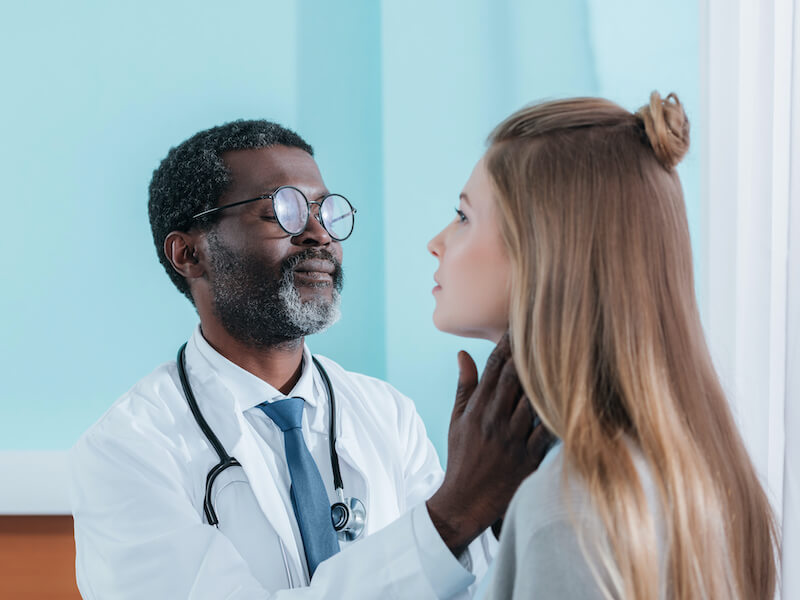
Each year over 50,000 people are diagnosed with oral cancer (oropharyngeal cancer). And that’s sad because oral cancers can have a fairly high rate of mortality. Most of these people are over 60 years old, but not all.
The mortality rate is not the result of oral cancer being especially aggressive. These cancers, instead, are difficult to detect because they aren’t obvious. In many circumstances, oral cancer isn’t detected until it has reached advanced (and more difficult to treat) stages.
When oral cancer is detected early, it’s normally very treatable. That’s why one of the best things you can do is keep an eye out for early signs of oral cancer.
Oral cancer – some early signals
The best way to diagnose the early indications of oral cancer is to schedule an appointment with us. A range of types of cancer can be identified by our screening process.
Between visits, there are a few signs to watch for. Here are some of the most common early signs of oral cancer:
- Trouble moving your jaw, including when you’re speaking or chewing.
- Your mouth has patches of white or red tissue. The white tissue is identified as leukoplakia and the red tissue is known as erythroplakia. Usually, these patches are nothing to worry about, but they may be an early indication of possible cancer in some instances.
- Tingling, numbness, or loss of sensation in the lower lip.
- Difficulty swallowing.
- Tooth loss. You should consult a doctor if you are noticing loose teeth which are not related to hygiene or dental issues (check with your dentist).
If you experience any of these symptoms, you should consult us right away.
When you go to an oral cancer screening, what happens?
We will thoroughly examine your mouth and throat and identify any red or white patches. The lesions that can develop from these patches can also become cancerous.
In most situations, a visual assessment will be sufficient. But in some circumstances, we might need to perform a biopsy to identify whether some tissue is something to be concerned with.
Avoiding cancer
Here are some scenarios that will make cancer more likely:
- Tobacco use. A wide variety of cancers, including oral cancer, will be more likely if you partake in tobacco products.
- Poor nutrition. Your risk of cancer decreases if you eat a healthy diet of fruits and vegetables, based on some evidence.
- Family history. You’ll have an elevated risk of developing oral cancer if it’s in your family history.
- Excessive drinking. Alcohol has been connected to cancer. Moderating your alcohol consumption (especially when that drinking is coupled with tobacco use) can help reduced your risks.
Your exposure to the sun should be limited: Your risk of lip and skin cancer will go up with too much exposure to the sun.
Regular screenings are important
Making an appointment with us is the best way you can decrease your risk of oral cancer. You will have a better chance of catching oral cancer early and before it becomes too advanced or spreads. This can substantially improve your prognosis.